Lisette Harris reaches into her freezer for a handful of ice cubes. The cool air that rushes out provides momentary relief from the stifling heat of her apartment, but she shuts the door quickly, concerned about an already high electricity bill. Causing further worry is the heat’s effect on her beloved cat, Calcifer, who has retreated under the bed in search of shade. Reaching her hand out, Harris rubs his dark fur with an ice cube, hoping to offset the sweltering discomfort. The rest of the ice is dropped in his nearby water bowl, where it melts rapidly, gone in an instant.
Eugene’s recent summer heat waves were a scorching wake-up call after years of increasingly hot summer temperatures in the Pacific Northwest. The city of Eugene surpassed its all-time heat record on June 27 with a blistering 111 degrees, and lower-income residents, especially University of Oregon students and alumni, found themselves individually unprepared for the extreme temperatures and systemically unsupported by local infrastructure and institutions. The suffocating heat sent many into a panic as they desperately attempted to keep themselves and their loved ones cool to avoid any heat-related illnesses.
According to the Energy Information Association, about 87% of U.S. homes nationwide have air conditioning installed. But according to Oregon’s largest medical research group, Kaiser Permanente Foundation Northwest, fewer than two-thirds of households in Oregon are equipped with air conditioning. Without the help of often costly cooling resources and technologies, people in the region are not prepared to withstand the extreme temperatures coming their way.
“The weather a few weeks ago was absolutely insane compared to what I thought it would be like,” Harris says of the June 27 heat wave. As an out-of-state student at UO, she expected typical Oregon rain and clouds paired with only a few days of high temperatures. “I genuinely had no idea it would ever be like that in Eugene.”
Harris says that all the buildings have air conditioning in her home state of Texas, so people don’t worry about overheating as much. During the recent heat wave in the Pacific Northwest, she says, it was actually about 30-35 degrees cooler in Houston. Harris had never been in 111-degree weather that early in the summer.
The World Weather Attribution Group reported that the occurrence of such intense heat waves was “virtually impossible” without climate change, citing that greenhouse gas emissions made the event at least 150 times more likely to occur. Though the exact mechanisms that led to 2021’s record-breaking heat waves are unknown, present theories point to a link between heat waves and climate change. Scientists stress that these environmental extremes aren’t going away and that soon they may not even qualify as anomalies anymore.
UO alum Ezra Samuels, who graduated in 2021, quickly set out to find an air conditioning unit as the heat wave arrived. After searching multiple stores, they had no such luck. Samuels says local stores were unequipped to handle the sudden surge in demand for air conditioning units and that devices sold out rapidly. They also checked online and saw that units available online were so sought after that prices skyrocketed past $600 and into the thousands.
“Folks tend to not care about those of us who don’t have a lot of money,” Samuels says. People always assume that Samuels’ parents help them pay for their housing because of their age, but they’ve been paying their own rent since they turned 18. Samuels says that they cannot afford the $800 a month student housing that has amenities like a dishwasher and air conditioning — and, as a result, has lived in “really sketchy houses that were kind of falling apart.”
Primary air conditioning is uncommon in local apartment buildings as well, with only the most expensive options, like major apartments near campus, advertising it as an amenity. American Community Campuses owns three student apartment complexes located on Franklin Boulevard, all of which have air conditioning. Units start at $600 for shared bedrooms, and the price steadily increases, averaging $1,078 per unit and topping at $1,629 for a private apartment.
Alongside an array of other amenities, the apartments advertise air conditioning and rooftop swimming pools — a stark contrast to less expensive unfurnished housing like the properties offered by local rental company Chinook Properties, which averages $562 per unit. Students and alumni who cannot afford the steep prices of luxury apartments face dangerous health hazards. Poor air circulation can also cause heat-related health issues, and public planners and construction workers didn’t anticipate the intense heat that the Pacific Northwest would face.
UO alum Abigail Hall, who graduated in 2020, says her apartment in Eugene had “zero AC and zero circulation.” As a result, she says she suffered low-grade heat exhaustion most days during the summer, which manifested as increased body temperature, brain fog and constant fatigue. Hall took up the issue with her leasing center, who brushed off her concerns.
“They were like, ‘Oh, well you face east, so you get sunlight all morning,’ and ‘You’re on the fourth floor and heat rises, so yeah, it’s going to be hot. Maybe get a fan?’” But even with a fan and numerous damp washcloths, Hall was unable to escape the heat and the hazards it posed to her health.
Buri McDonald, the communications specialist at local medical network PeaceHealth Oregon, expressed concerns about the impact of the heat waves on the public’s health.
“Between June 25 and June 27, 2021, Emergency Departments at PeaceHealth hospitals in Springfield and Eugene saw about 15 cases of heat-related illness,” she says. “That’s much higher than normal.”
The online PeaceHealth information library says that hyperthermia (a high body temperature) can develop quickly in extremely hot environments and small spaces with poor ventilation and circulation. Additionally, “people who live in cities are especially vulnerable to illness during a heat wave because heat is trapped by tall buildings and air pollutants,” PeaceHealth reports.
The Lane County Climate Advisory Committee reports that average summer temperatures will increase 10-12 degrees by 2100. These hotter temperatures will disproportionately affect the health of vulnerable populations, including the very young, elderly and families in poverty. The projected increase in temperature has prompted a need to reassess infrastructure and cooling resources by the local government.
Eugene-based climate strategist Mark Nystrom reports that the local Board of Commissioners is currently drafting the Lane County Climate Action Plan.
“Housing is definitely an issue throughout the county,” Nystrom says. “Our next plan will be focused on building climate resilience, which will include the built environment and many other things.”
In this context, climate resilience refers to identifying and implementing strategies that will help the community adapt to a changing climate. A large aspect of the climate resilience plan zeroes in on local buildings and energy, reviewing energy used in Eugene’s residential, commercial and industrial buildings. The intent is to reduce energy use in existing buildings and new construction, expand the use of renewable energy and prepare buildings for climate change.
“I just think it’s something that should’ve been focused on a lot during last fall so we could figure most of it out before winter and summer,” Harris says, adding that she hopes the city will genuinely make residential temperature regulation a priority so people won’t have to suffer through another heat-soaked summer.
This summer’s climate-change-induced heat waves pushed some UO students and alumni to identify the necessary actions to stay safe at home in the coming years. And young Eugene residents are not without ideas for solutions. Harris wants required air conditioning in apartment buildings and leased homes. Samuels would like UO to provide cooling centers and to fundraise for students to get portable air conditioning. Samuels also wants legal parameters for public safety set, specifically regarding how much local retailers can raise prices of fans and air conditioning units during a surge in demand.
As summer temperatures become more and more dangerous due to climate change, the need for accommodation and public policy change is increasingly necessary.
“It would be really wise of Eugene to make some decisions on helping residents here in the future,” Harris says. “Because if things keep going the way they have been, the next few summers will probably be worse.”



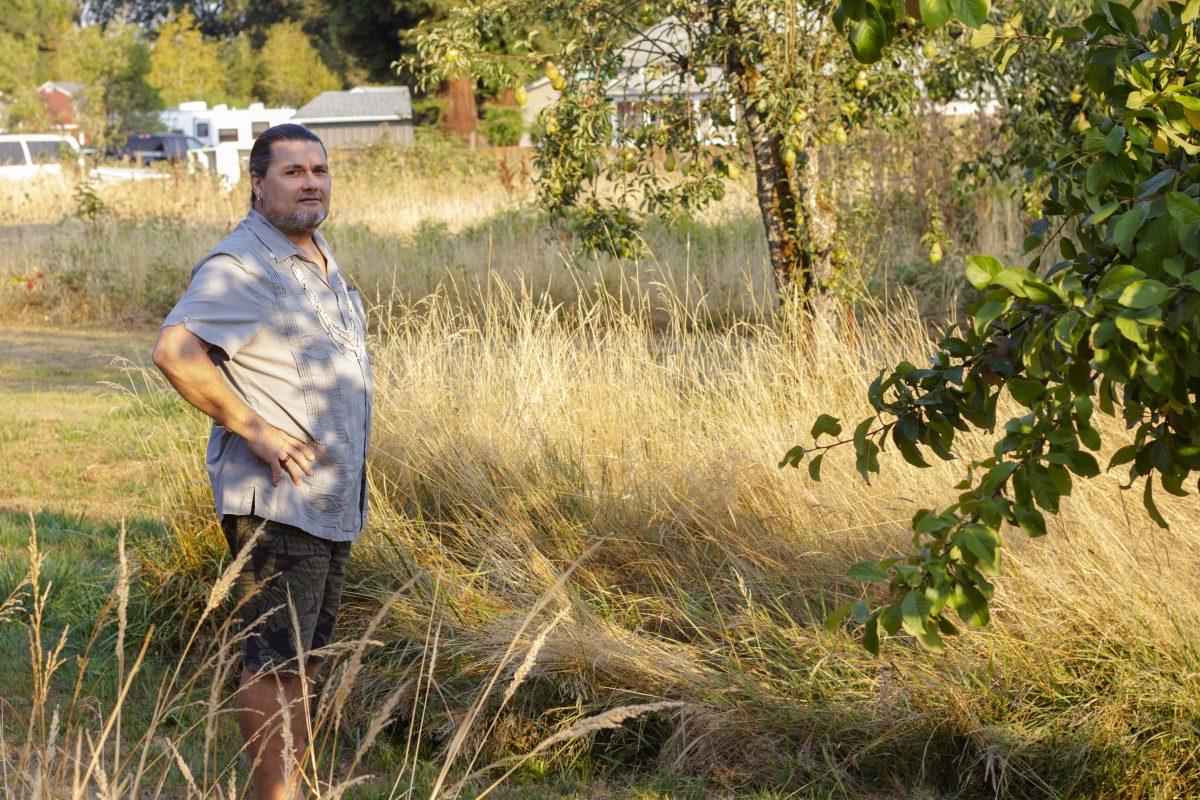
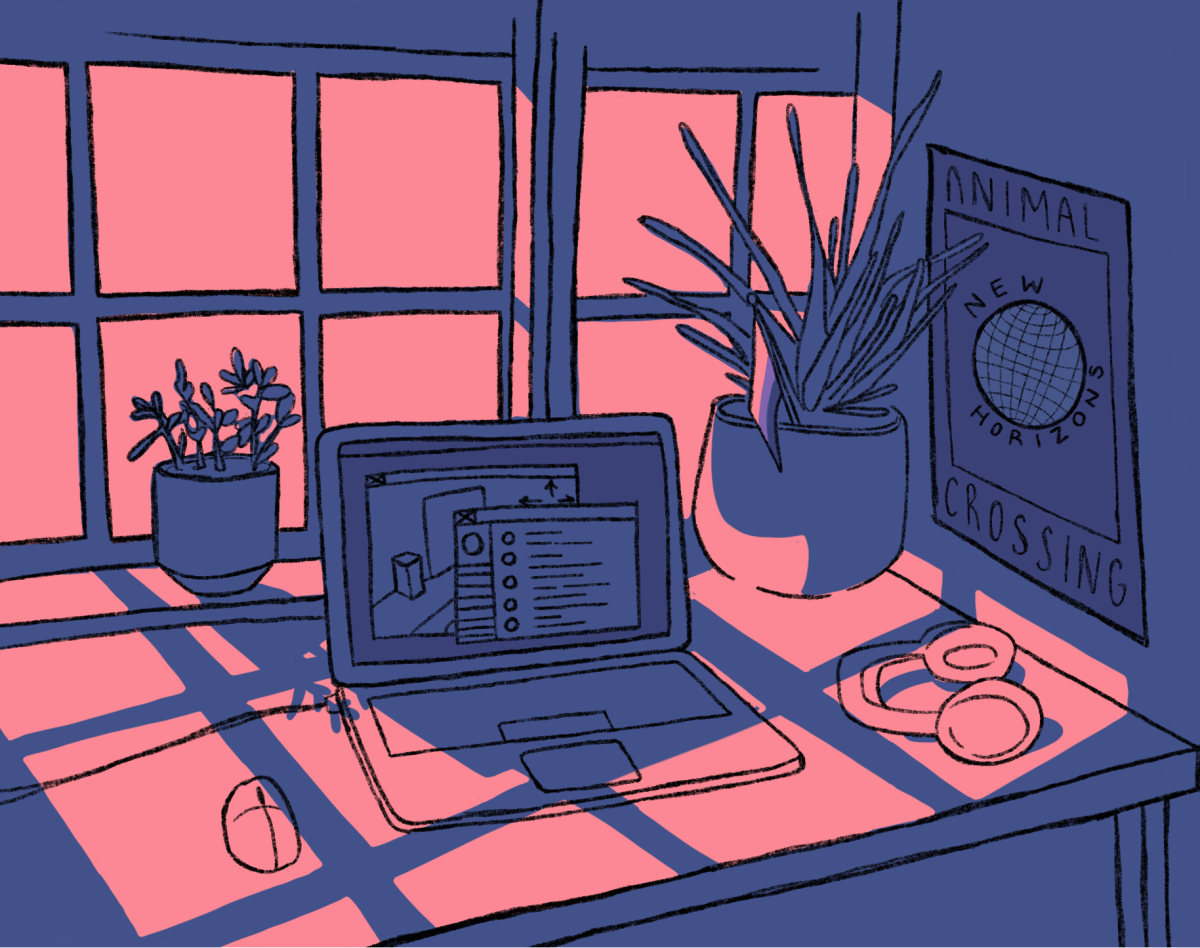
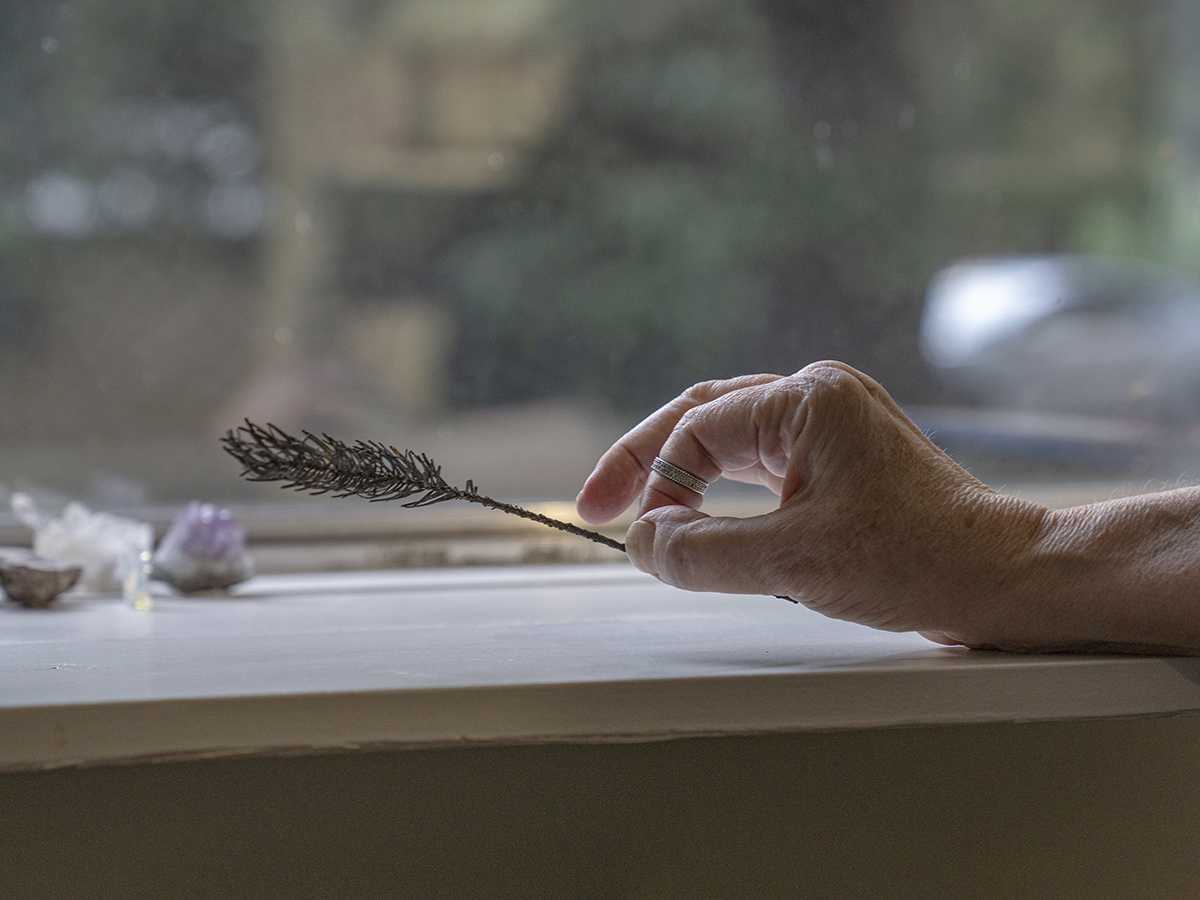
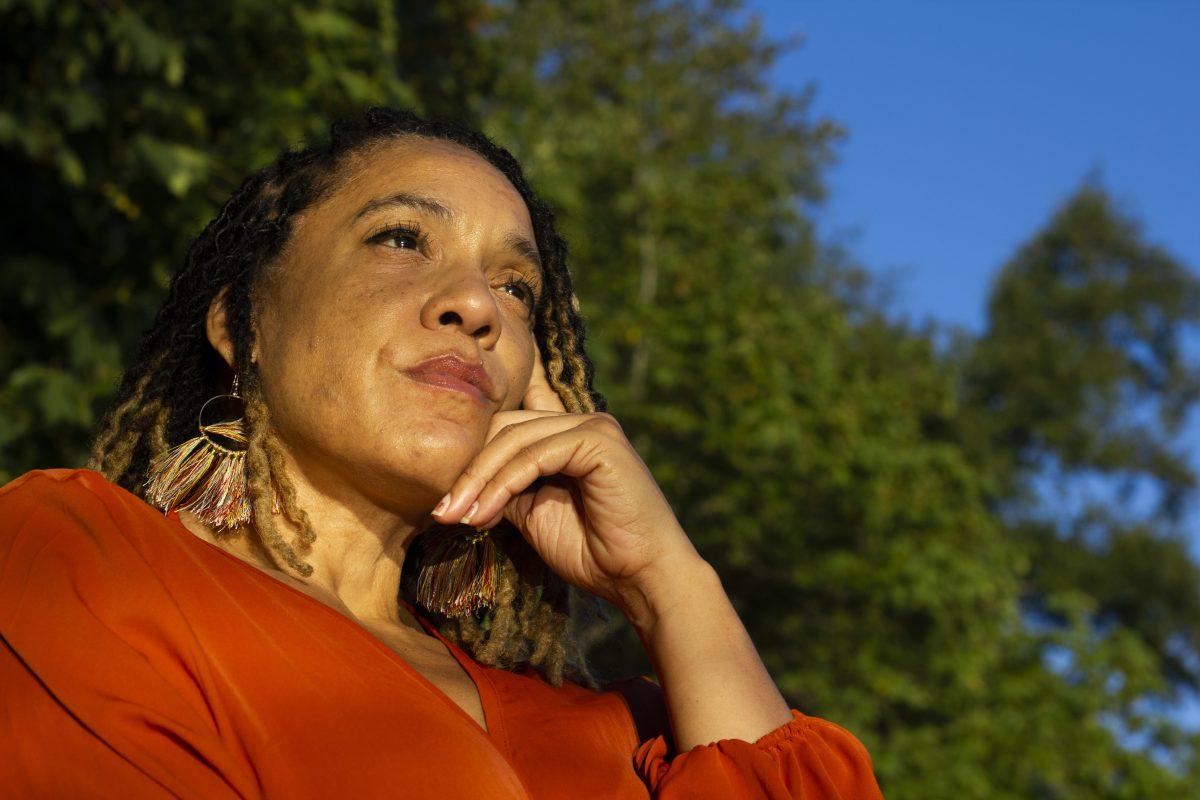
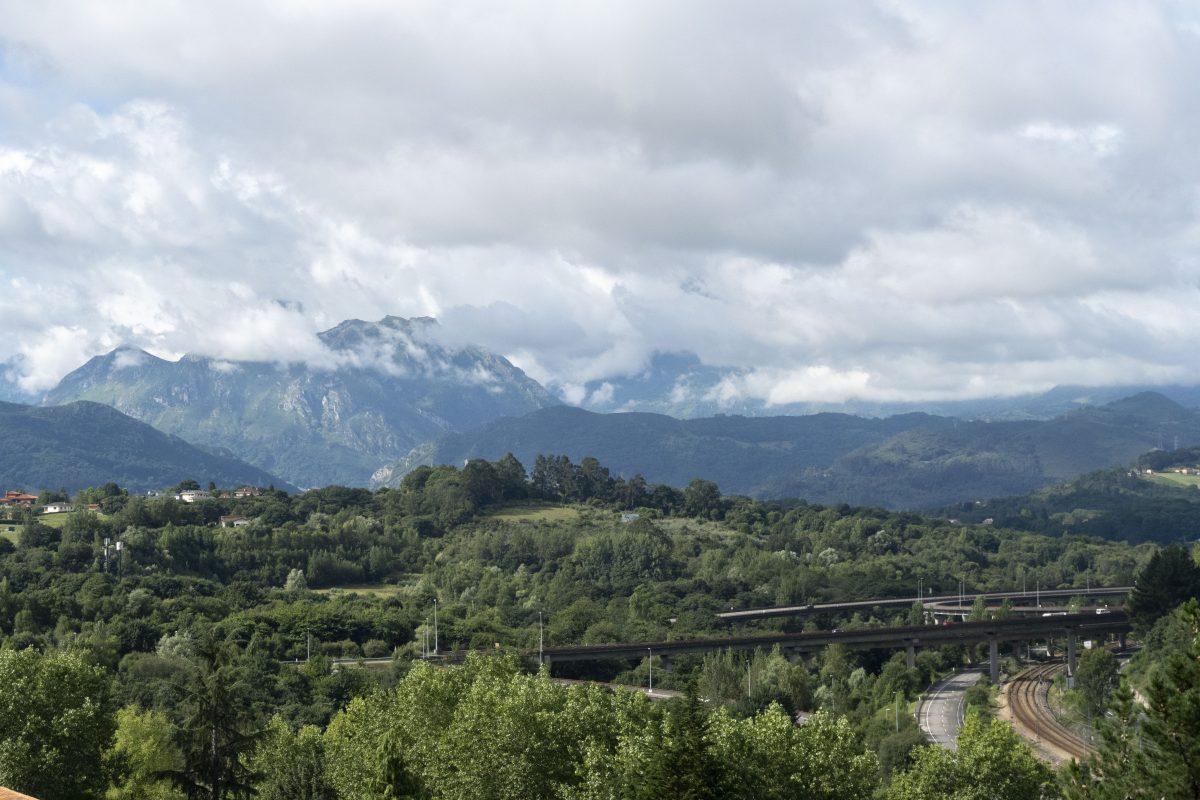



![[Photo Courtesy of the Lara Family]
Ruben embraces his beloved childhood goat, Katrina.](https://ethos.dailyemerald.com/wp-content/uploads/2025/05/katrina-1-1060x1200.jpg)


